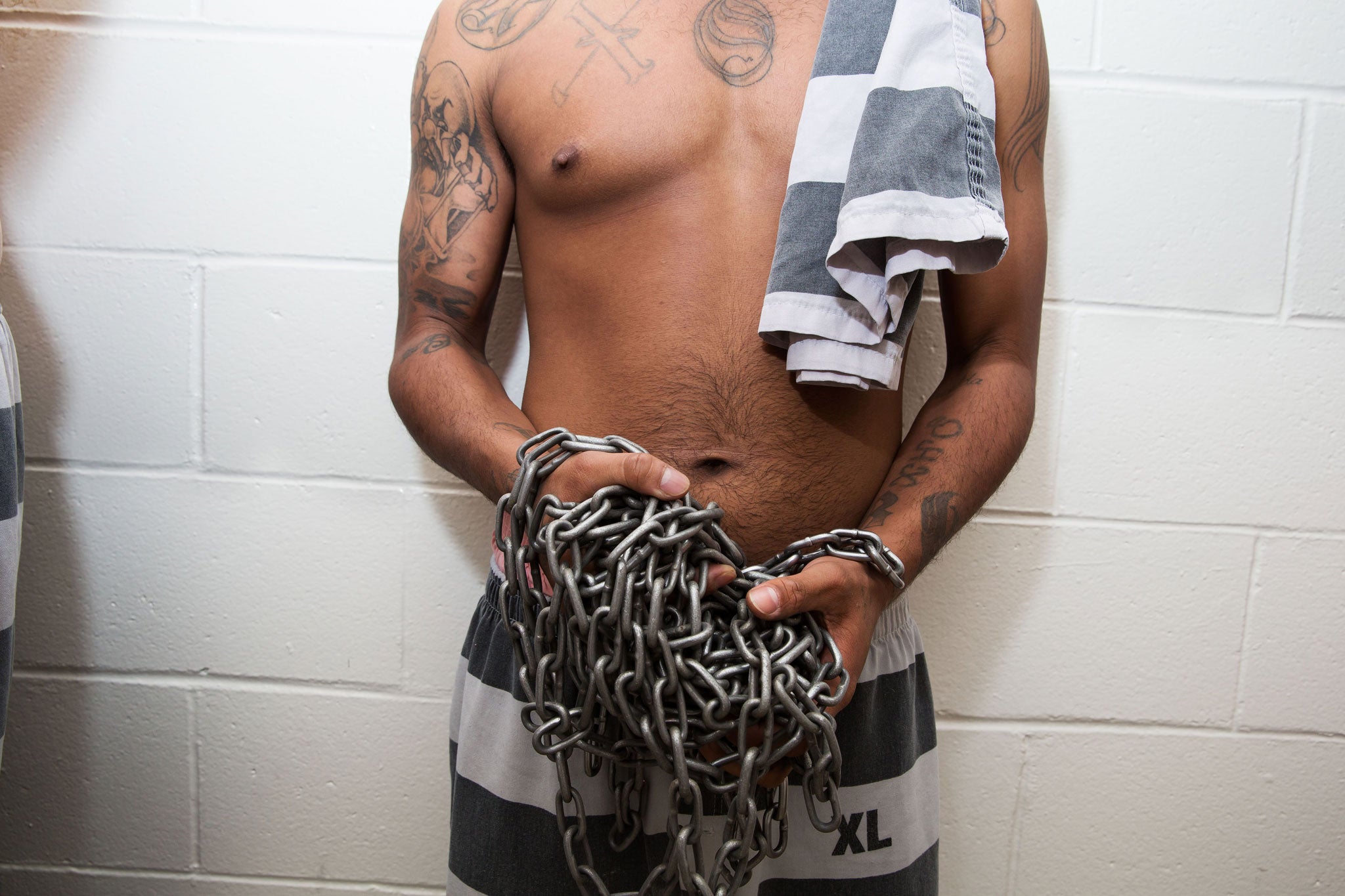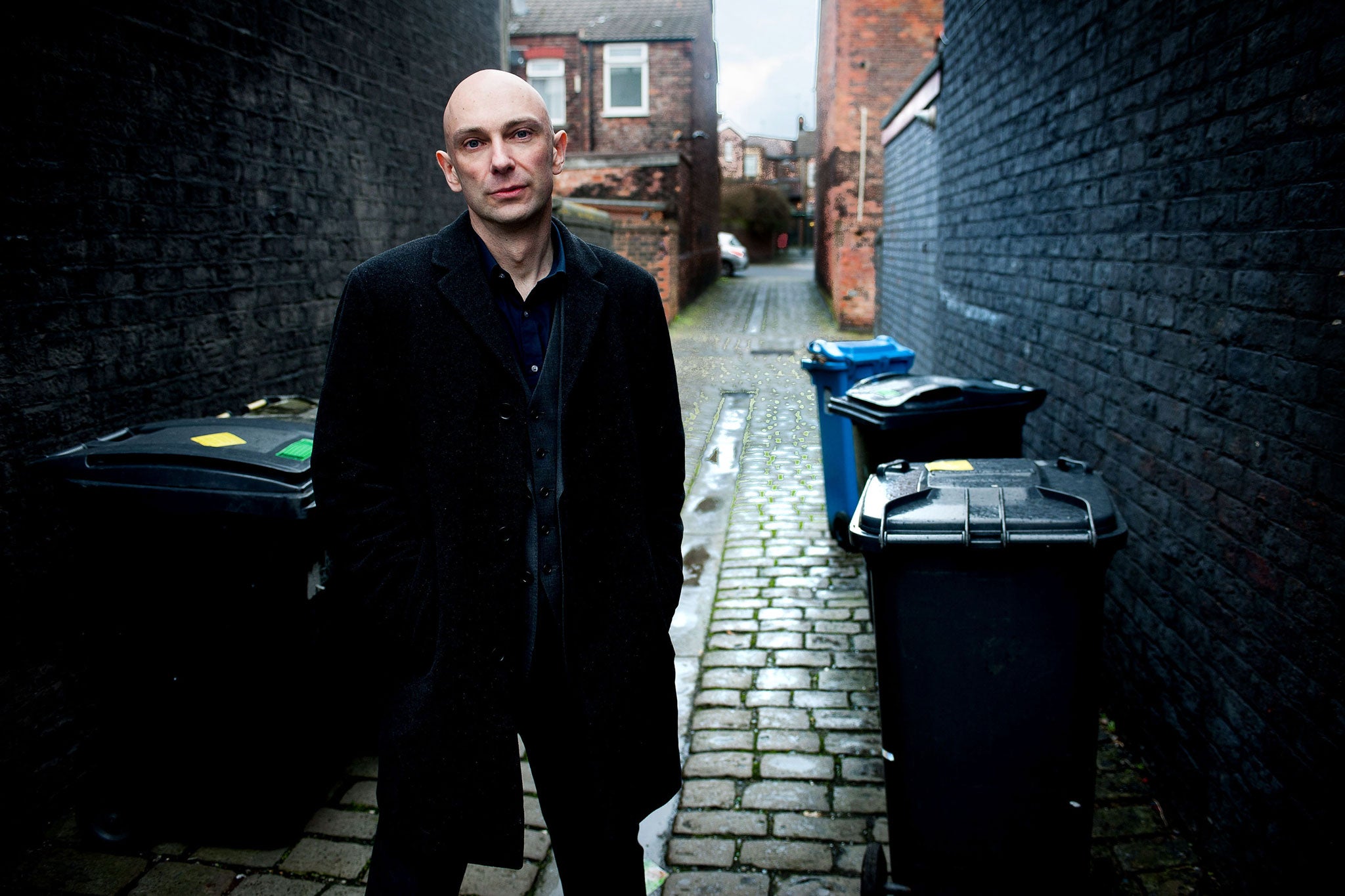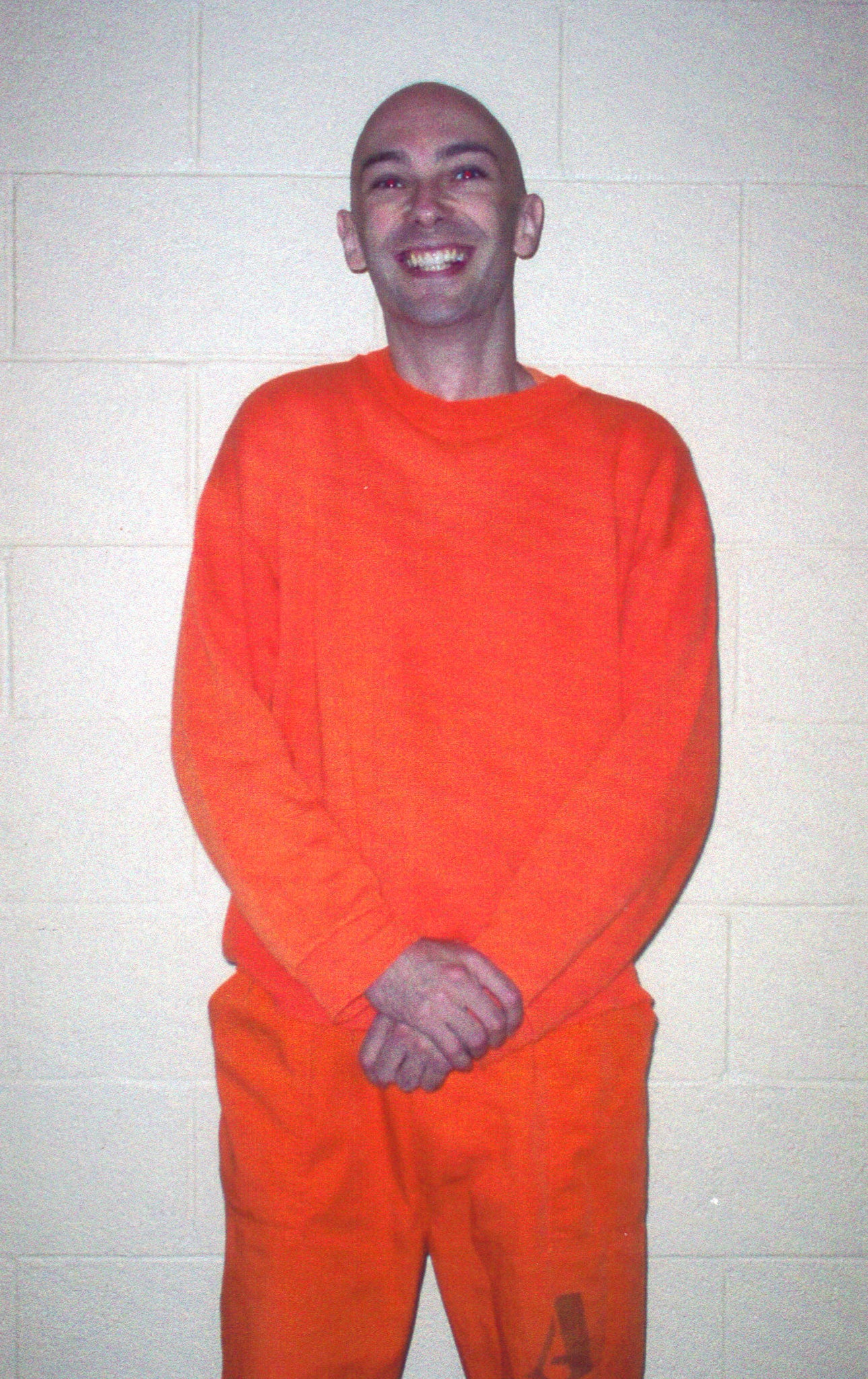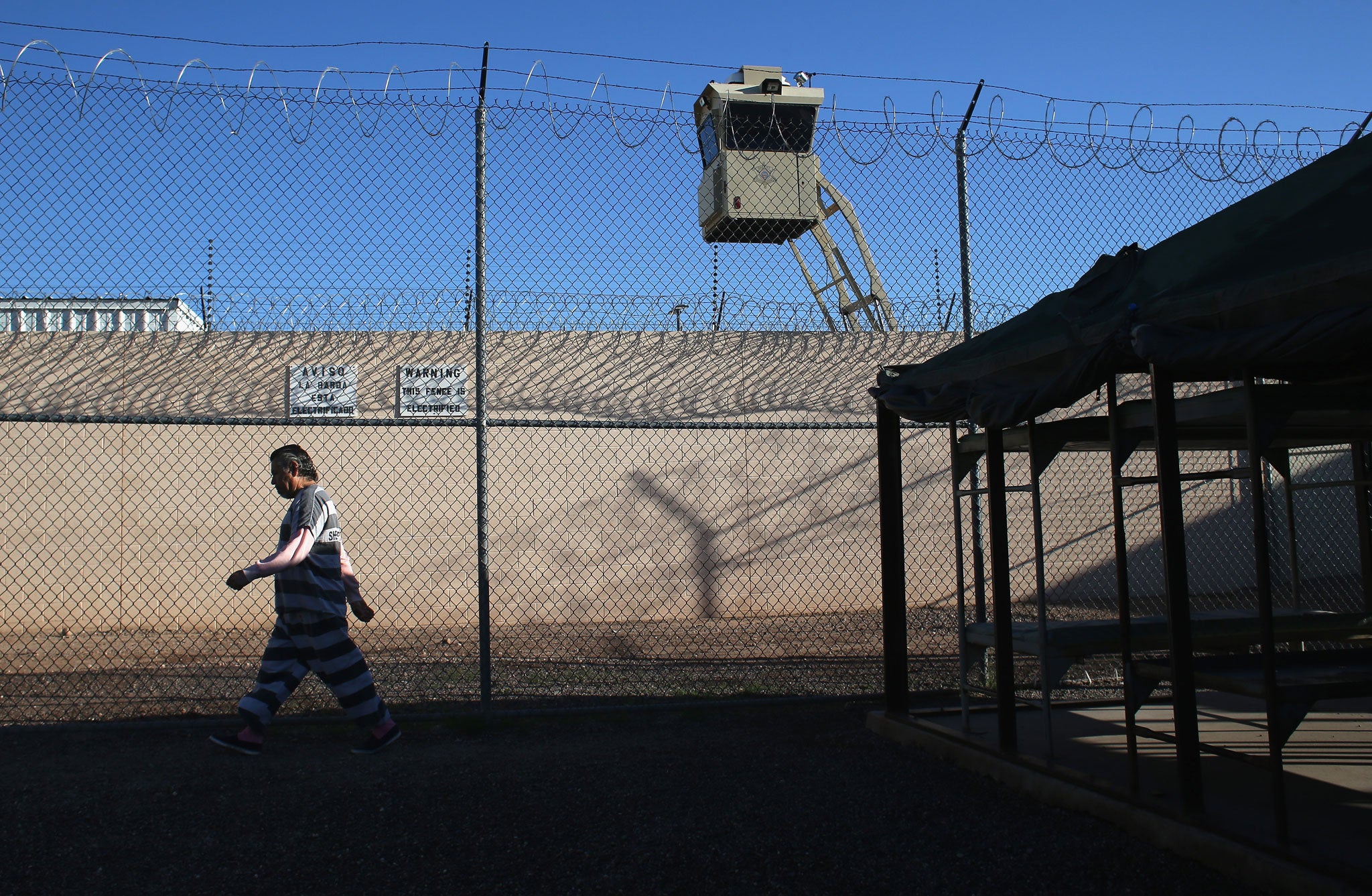Sex in men's prisons: 'The US system cultivates rape. If you treat people like animals, they behave like it'
Human Rights Watch estimated in 2010 that 140,000 US inmates have been raped. Shaun Attwood has written three books on life inside and his latest, Prison Time, details the sex – consensual or otherwise – the prostitution, the pimping and the equal, loving relationships behind bars

Your support helps us to tell the story
From reproductive rights to climate change to Big Tech, The Independent is on the ground when the story is developing. Whether it's investigating the financials of Elon Musk's pro-Trump PAC or producing our latest documentary, 'The A Word', which shines a light on the American women fighting for reproductive rights, we know how important it is to parse out the facts from the messaging.
At such a critical moment in US history, we need reporters on the ground. Your donation allows us to keep sending journalists to speak to both sides of the story.
The Independent is trusted by Americans across the entire political spectrum. And unlike many other quality news outlets, we choose not to lock Americans out of our reporting and analysis with paywalls. We believe quality journalism should be available to everyone, paid for by those who can afford it.
Your support makes all the difference.The crook of another man's elbow is on my Adam's apple, pressing down, choking me. After just a couple of seconds, I panic and gasp.
Shaun Attwood, who spent more than five years in some of America's toughest prisons, including Arizona's infamous Maricopa Jail, is showing me how men in prison are raped.
"Generally they put the victim to sleep with a choke hold – locking the windpipe like this," he says, rendering me unable to reply. "Within about 10 seconds you're unconscious."
Attacks don't always begin like this. Sometimes, "they'll lure them with drugs and get them really high – 90 per cent of prisoners shoot-up drugs". Sometimes they'll trick the victim into a debt and then make them repay it with sex. Other times it can start with a beating or stabbing.
Human Rights Watch estimated in 2010 – three years after Attwood left jail – that 140,000 US inmates have been raped. Other studies have helped fill in the quantitative picture: 21 per cent of prisoners in the Midwest reported being forced into some form of sexual activity, according to Prison Journal. Young inmates are five times more likely to be sexually assaulted, says Just Detention International, an organisation devoted to ending prison rape. Similar statistics aren't available in the UK but in the year 2011 – there were 103 male and female prisoner-on-prisoner sexual assaults.
The statistics, then, we know. The jokes, of course, we know, too: "Don't drop the soap!" is repeated so often by so many as to become Britain and America's prison-rape refrain – a chorus of discomfort to muzzle the horror.
But the 3D picture of prison rape in America, the how and why and what happens next, is scarcely uttered because those who survive the system almost invariably have no voice. Attwood, however, a tall, skinny, somewhat geeky 43-year-old from Widnes, doesn't just have a voice, but has written three books on life inside. And his latest, Prison Time, details the sex – consensual or otherwise – the prostitution, the pimping and the equal, loving relationships behind bars.
The details of which cast fresh light not only on the culture, politics and dynamics in America's penitentiary system, but on the nature of male sexuality itself. Heterosexual? Bi? Gay? Labels erode, irrelevant, in the absence of women and societal constraints.
We begin by discussing rape because it is everywhere in prison and everywhere in his book, an ever-present threat.
"I was constantly mentally preparing to fight to the death to stop it happening to me," he says. "I would leave pens out [in my cell] – I was getting ready to, you know..." his voice trails off. Pens can be a deadly weapon. They can also blind. (A transgender inmate called She-Ra, whom Attwood became friends with, was so broken by gang rapes she finally stopped them by popping an eyeball out of one of her attackers.)
"I had a profound determination to stop it happening because once that's happened to you, everyone finds out and the whole prison society will treat you differently. From then on you're game for anyone to do anything to do you. Not only sexually, but in any way you will be taken advantage of."

It's not only young men who are more likely to be raped, but obviously gay ones, too. What are the chances, then, that a young-ish gay man such as myself would be raped? Attwood looks down.
"It is inevitable," he says quietly. "And no one on the outside is interested. Until someone's son is calling them from prison saying, 'I've got a cellmate with a padlock in a sock who is threatening to rape me,' they couldn't care less."
In 2003 – a year after Attwood's incarceration for dealing ecstasy on the Arizona rave scene – a federal law was passed, the Prison Rape Elimination Act, decreeing statistics must be compiled nationally and grants given to prisons to help reduce rape. This manifested in what Attwood calls "rape classes".
"It involved us being taught about rape and being told we have to report rape," he says with a snort of derision. "Everyone laughed throughout and said to the teacher, 'We are not going to report rape!'. If you report anything in prison you're deemed a snitch and it's KOS – kill on sight – for snitches. At the end of the class everyone was saying, 'They might as well give us rape kits' – a how-to."
Not that they needed it. Immediately after the class, "a mentally-ill prisoner was gang-raped. No one reported a thing".
Is there anything, then, that could be done to stop it?
"When you've got two guards watching hundreds of prisoners – to keep costs down – prisoners can do whatever they want. The US prison system cultivates rape. If you treat people like animals, they behave like it."
Unsurprisingly, in such an epidemic, sexually transmitted infection (STI) rates are sky-high. Attwood says in one prison, he counted up the cons with hepatitis C: it came to two-thirds. Many had HIV. The only ones receiving treatment were those who had taken legal action. And thus, some prisoners had full-blown Aids.
Without realising, Attwood himself illustrates how normalised inmates become to rape and sexual assault, to the extent they don't even recognise it.
In Prison Time, he describes walking in on a young man being forced to fellate another prisoner, an act considered rape in several states and many countries. But when I ask if Attwood ever witnessed a rape, he says no. And when I ask if he felt he had been assaulted when another lag grabbed him, French-kissed him and groped him with hands moist with lubricant Attwood replies: "No, not at all. If I did that to a woman in a bar, that's sexual assault, but in prison the limits are completely different from society."

The man who grabbed him he had nicknamed Jeeves. This is because Jeeves was his "butler". Jeeves was sexually obsessed with Attwood and so offered to work for him cleaning his cell and looking after all domestic concerns – a dynamic from which he derived sexual kicks. There was no payment, just the thrill of it. He would make advances to Attwood fairly regularly, but was always rebutted. To the English inmate, Jeeves was comparatively harmless – before being moved to this cell, Attwood would have to walk past another every day in which resided a prisoner called Booga. He documents their first meeting:
"I'm pulled into a cell reeking of backside sweat and masturbation, a cheese-tinted funk. 'I'm Booga. Let's fuck,' says a squat man in urine-stained boxers, with WHITE TRASH tattooed on his torso...I can't believe my eyes when he drops his boxers and waggles his penis... He grabs me. We scuffle... When I feel his penis rub against my leg, my adrenalin kicks in so forcefully I experience a burst of strength and wriggle free."
For Attwood, escaping rape, as well as "murder, or even having bones broken or teeth knocked out", for nearly six years was "freakishly" lucky, and thanks in part to his "English wit" and "people skills" as well his friendships with some of the gang leaders. Other prisoners avoid rape – or at least consider themselves to be avoiding it – by becoming a "punk".
This relates to the word's original meaning – the receptive male partner in anal sex – but in prison becomes a job, an identity. You are a receptacle, owned by another.
"They tend to be the younger, prettier inmates – or the transsexual ones," explains Attwood. "If you're a big, bad gang member, which gives you the right to have a punk to use for sex, as long as you're the 'giver', it's not considered remotely gay."
The particulars of this relationship can vary. The higher up the prison strata (which generally means the more violent) the gangster, the better looking his punk.
"But he's got to fight to maintain that punk. It's a warrior society."
The punk becomes their property. And as such, can either be kept for their sole use or pimped.
"People use them like a commodity and rent them out," he explains. But it's only others with high status who hire them.
"Some will allow their punks to be unfaithful with other punks only, which is called 'bumping pussies'. It's all tied up in notions of property ownership, with sexual jealousy a secondary factor."
The rules of ownership are also governed by race. With most prisoners grouping socially on racial lines, so, too, must their punks.
"A punter – say a Mexican American – might rent a white punk from a white pimp, but a Mexican American wouldn't be running a white punk."
As Attwood utters these words in his rather resonant Cheshire tones – an excitable Gary Barlow if you will – he attracts several glances. We are in a vegetarian restaurant called The Beano, in Guildford, where he now lives. Tables of slate-haired women are seemingly unused to hearing about sexual slavery as they chow down on mushroom lasagne.
They look round again when he describes a prisoner regularly selling his semen to another who used it in ways perhaps unsuitable to describe in a newspaper. And again when he enthuses about the aforementioned She-Ra melting down bits of plastic to make dildos. Needs must.

Attwood is as out of place here as he was in Arizona's prisons. But the "shy" raver who went to America's Wild West aged 21 to become a stockbroker, before giving it up to supply the state's party scene with ecstasy, could scarcely care less. He is alive and five thousand miles from the world that stripped his identity like white spirit. Even his sexual identity, even after just a few years, started to wane, tracing a fairly typical trajectory for inmates.
"Early on, the other prisoners told me, 'After so many years you'll start to turn', and I was like, 'No, no, no, I've got a girlfriend'. But, gradually, all my belief systems and conditioning started falling away. Being in prison made me question my own sexuality."
Three magnets started tugging at his old heterosexuality. First, prison mores.
"Any number of activities deemed 'gay' on the outside aren't inside," he says. "Being the 'top' in anal sex? Receiving oral sex from a [pre-operative] transsexual? Considered perfectly straight."
Then there were the transgender women themselves – found in male prisons because the American system doesn't recognise chosen gender. One in particular, called Gina, he describes lusting after, fantasising about, and coming "this close" to having sexual contact with, prevented only by her pimp.
And finally, there is the vast, gripping loneliness.
"The deprivation of physical contact in any form plays a huge role," he says, frowning and looking more forlorn than ever. "You miss the warmth, that bond, the intimacy, the touch." He enunciates the words as if salivating over an exquisite dessert. "Going without sex kills you – it's one of the hardest parts." At this he shrieks with laughter, a paroxysm of stress and relief. Now, he has a girlfriend.
But he wasn't just unusually lucky to avoid rape or extreme violence; he was almost anomalous in never engaging sexually with another prisoner.
"The majority are at least receiving oral sex from a transsexual." One of whom, he says, cut her own testicles off in her cell, to quell testosterone.
But perhaps more striking and surprising than all of the above is the tender, loving relationships he documents. Mostly, couples keep their relationship private, as having anything valuable on display leaves one open to sabotage. But not all.
"There was one couple – an older and younger guy – and the young guy had broken up with him, so he was crying his eyes out, running across the recreation field, shouting, 'You broke my heart!' in front of all the men. It was quite a sight."
And when forced apart, for example when one prisoner is moved to a lower security unit, they would then often deliberately get into trouble to be moved back with their partner.
"Lots of these guys had wives or girlfriends on the outside who knew nothing about these relationships, and they'd return to them, on release."
Although unsure about the previous sexual identity of some of these men, Attwood is certain of one thing: the longer the sentence, the higher the chance of crossing the line.
"Presently, I couldn't imagine ending up with a man, but I know you change over time – after a 10- or 15-year stretch I would in all likelihood be thinking differently. Your old life gets crushed out of you."
He also received some aching love letters from ostensibly straight prisoners. One of which was from a Mexican mafia hit man called Frankie who imagined being engaged to Attwood and explaining how he wants someone he can "make love to".
"I spoke to Frankie on the phone last year, he's back with his wife. I asked him how he reconciled all this and he said, 'My mind works in all kinds of ways'." He shrieks with laughter again.
After everything the writer witnessed, it is perhaps no surprise that seven years on, Attwood remains psychologically scarred.
"I still have nightmares," he says. "I used to get flashbacks." This might also explain the place where he chose to make a new life.
"I don't want any more mad excitement. I've had enough of it, so Guildford's perfect for me. Just to be able to walk along the river, sit on a bench and stare at the water. It's the height of ecstasy".
'Prison Time' is available now (Mainstream Publishing, £12.99)
Additional research by Andrew Mackereth
Join our commenting forum
Join thought-provoking conversations, follow other Independent readers and see their replies
Comments